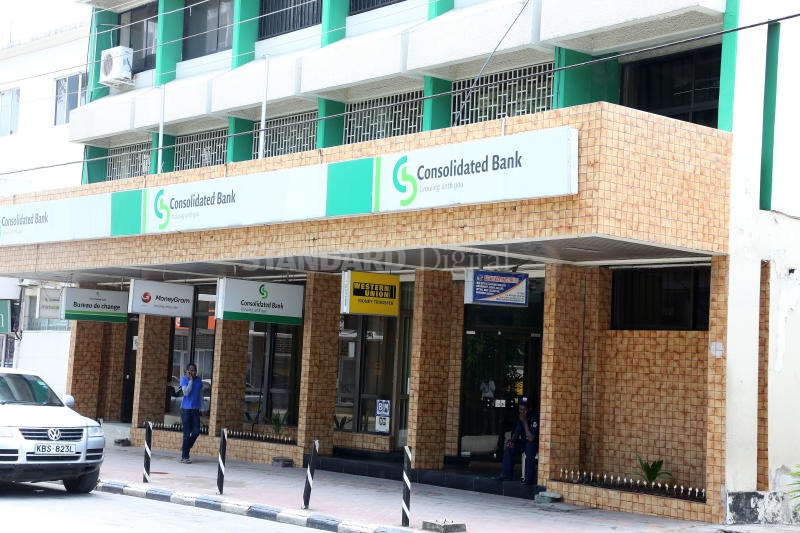×
The Standard e-Paper
Join Thousands Daily

National Treasury has come to the rescue of State-owned Consolidated Bank of Kenya after a streak of losses almost wiped out its capital base.
As at March 31, the bank’s core capital was Sh20.6 million, a world apart from the regulator’s threshold of Sh1 billion. This stands at a mere two per cent of the Central Bank of Kenya’s minimum requirement for a sound commercial bank.